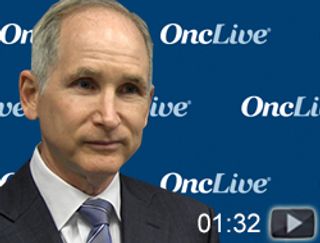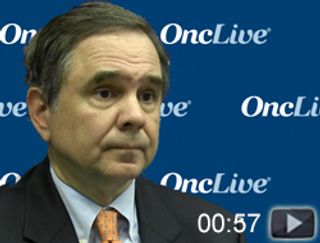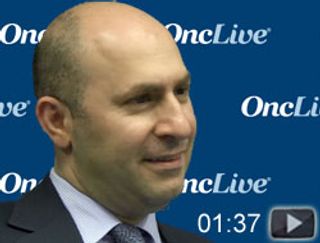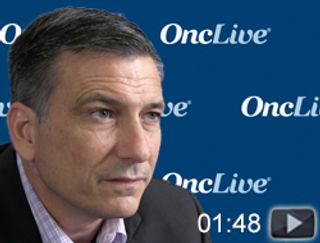
Immuno-Oncology
Latest News

Latest Videos

CME Content
More News

The FDA has approved pembrolizumab (Keytruda) for the frontline treatment of patients with metastatic non­–small cell lung cancer whose tumors have ≥50% PD-L1 expression based on an FDA-approved test and who do not harbor EGFR or ALK aberrations.
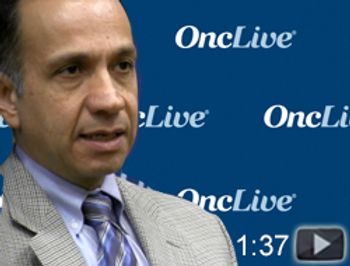
Hossein Borghaei, DO, associate professor at Fox Chase Cancer Center, discusses selecting between nivolumab (Opdivo) and pembrolizumab (Keytruda) in second-line non–small cell lung cancer (NSCLC).
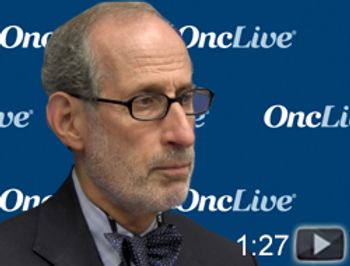
Jeffery S. Weber, MD, PhD, deputy director of the Laura and Isaac Perlmutter Cancer Center, co-director of the Melanoma Program, and head of Experimental Therapeutics at NYU Langone Medical Center, discuses the key takeaways from the phase II CheckMate-064 trial, in which patients were randomized to receive either nivolumab followed by ipilimumab followed by nivolumab maintenance therapy, or ipilimumab followed by nivolumab and maintenance therapy with nivolumab.

Suzanne L. Topalian, MD, discusses the development of PD-1/PD-L1 inhibitors, emerging biomarkers, and why a precision medicine approach is necessary to identify effective immunotherapy combination regimens.

Edward B. Garon, MD, director, Thoracic Oncology, Jonsson Comprehensive Cancer Center, UCLA, discusses his concerns for potential immunotherapy combinations for the treatment of patients with lung cancer.

The FDA has granted a priority review designation to nivolumab as a treatment for patients with locally advanced unresectable or metastatic urothelial carcinoma following progression on a platinum-containing therapy.

Lisa Carey, MD, associate director, Clinical Research, UNC Lineberger Comprehensive Cancer Center, Richardson and Marilyn Jacobs Preyer Distinguished Professorship for Breast Cancer Research, UNC-Chapel Hill, discusses the possibility of administering immunotherapy as treatment for patients with HER2-positive breast cancer.

Pembrolizumab improved survival compared with chemotherapy in previously treated patients with advanced urothelial cancer in the phase III KEYNOTE-045 trial.

Given the poor prognoses often seen in patients with anaplastic thyroid cancer, researchers are seeking novel therapies that may hold more promise than surgery or radiation.
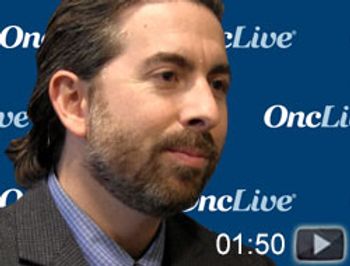
Jason Luke, MD, assistant professor of Medicine, The University of Chicago Medicine, discusses the various methods involved in immunotherapy diagnostics in the treatment landscape of melanoma.
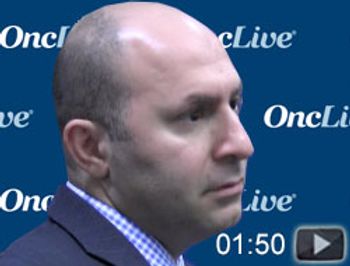
Toni K. Choueiri, MD, clinical director, Lank Center for Genitourinary Oncology, director, Kidney Cancer Center, senior physician, Dana-Farber Cancer Institute, discusses some of the ongoing trials evaluating different immunotherapy agents in renal cell carcinoma.
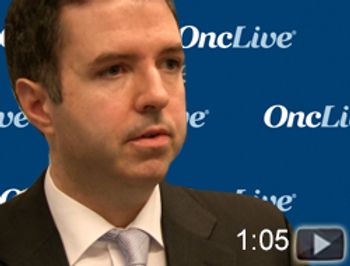
Patrick M. Forde, MBBCh, assistant professor of oncology, Johns Hopkins Hospital, discusses a study presented at ESMO 2016 on neoadjuvant nivolumab, in early stage resectable non-small-cell lung cancer (NSCLC).
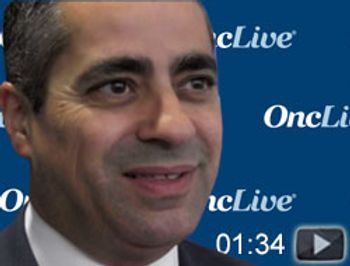
Anthony B. El-Khoueiry, MD, associate professor of Clinical Medicine, USC Norris Comprehensive Cancer Center, discusses the role that immunotherapy currently plays, and will continue to play, in the treatment landscape of hepatocellular carcinoma (HCC).

Stefani Spranger, PhD, postdoctoral fellow, Cancer Research Institute at The University of Chicago, discusses the basic knowledge all oncologists should have regarding immunotherapy.

The FDA has approved atezolizumab (Tecentriq) for the treatment of patients with metastatic non–small cell lung cancer who have progressed after a platinum-containing regimen and an FDA-approved targeted therapy for those patients harboring EGFR or ALK abnormalities.
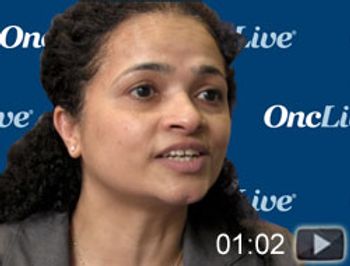
Sangeetha Palakurthi, PhD, head of the Cancer Biology and Pharmacology Group at the Belfer Center for Applied Cancer Science, Dana-Farber Cancer Institute, discusses the FDA approval of atezolizumab (Tecentriq) for the treatment of patients with non–small cell lung cancer (NSCLC).

Cabozantinib plus nivolumab demonstrated promising activity in the second-line setting and beyond at all dose levels tested in patients with advanced/refractory genitourinary cancers.

Surgical treatment of patients with non-muscle invasive bladder cancer can be considered a curative option, but the associated risk in comorbid patients is leading researchers to further explore the option of immunotherapy.

Immunotherapy is at the forefront of the burgeoning treatment landscape in renal cell carincoma, according to David McDermott, MD.

Laurence Albiges, MD, medical oncologist, head, Genitourinary Oncology Unit, Gustave Roussy, discusses how immunotherapy has had an impact on the field of renal cell carcinoma (RCC).

George Somlo, MD, medical oncologist, City of Hope, discusses some of the novel agents being evaluated for the treatment of patients with multiple myeloma.

Jason Luke, MD, discusses some of the exciting research that is happening across the field of immunotherapy in melanoma, including combination strategies, novel agents, and next-generation diagnostics.

A final analysis of the overall survival data from the KEYNOTE-006 trial showed that frontline pembrolizumab was superior to ipilimumab in the treatment of patients with advanced melanoma.

The Committee for Medicinal Products for Human Use has recommended approval of nivolumab for the treatment of patients with relapsed/refractory classical Hodgkin lymphoma after autologous stem cell transplant and treatment with brentuximab vedotin.
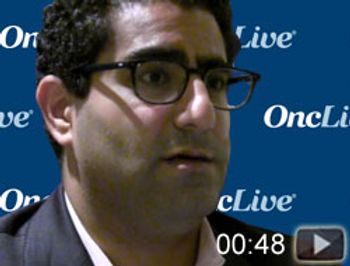
Joshua Sabari, MD, medical oncology fellow, Memorial Sloan Kettering Cancer Center, discusses recent findings in immunotherapy as potential treatment for patients with small cell lung cancer.









